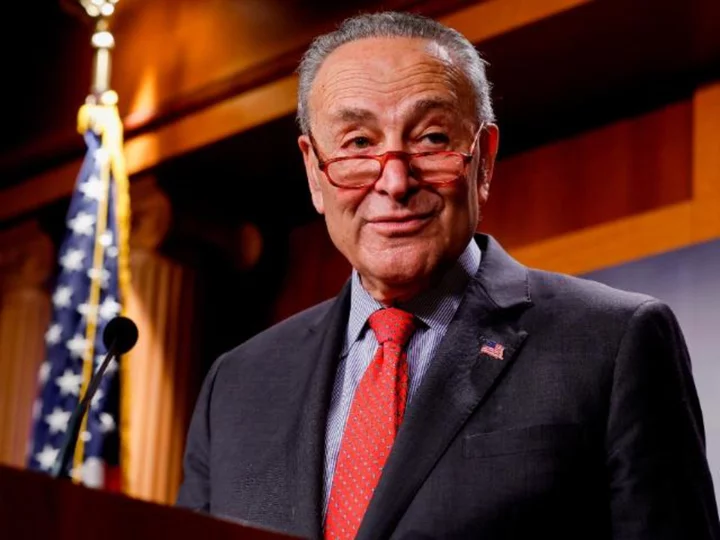Senators are racing the clock to pass a bill to to suspend the nation's debt limit through January 1, 2025 -- but it's not yet clear when a final vote will take place as the threat of default looms.
Once the Senate passes the measure, it can be sent to President Joe Biden to be signed into law.
Senate Majority Leader Chuck Schumer and Republican Leader Mitch McConnell have made it clear they want to move ahead with a vote on the bill as early as Thursday, but would need an agreement from all 100 senators to do so. In the Senate, any one lawmaker can delay a swift vote.
The timeframe to pass the bill through Congress is extremely tight and there is little room for error, putting enormous pressure on leadership in both parties. June 5 is the date when the Treasury Department has said it will no longer be able to pay all of the nation's obligations in full and on time, a scenario that could trigger global economic catastrophe.
In order to meet the deadline, senators will need to find a time agreement -- and at this point, both sides are optimistic that can happen.
Suspending the debt limit through 2025 would take the threat of default off table until after the presidential election. In addition to addressing the debt limit, the bill caps non-defense spending, expands work requirements for some food stamp recipients and claws back some Covid-19 relief funds, among other policy provisions.
While the measure faced backlash from the far right and the far left in the House, it passed the chamber Wednesday by a wide margin with significant bipartisan support. The final tally for the vote was 314 to 117. There were 149 Republicans and 165 Democrats who voted for the bill and 71 Republicans and 46 Democrats who voted against it.
Senators will be allowed to offer amendments on the bill, though Schumer said Wednesday he does not want to have to send the bill back to the House, meaning that no amendment can actually pass.
Several Republicans and a handful of Democrats have already said they will oppose the bill. A number of senators from both parties told CNN Tuesday and Wednesday that they are still reviewing it.
Sen. Bernie Sanders, a Vermont independent who caucuses with Democrats, is a "no." Democratic Sen. Jeff Merkley of Oregon is also opposed.

